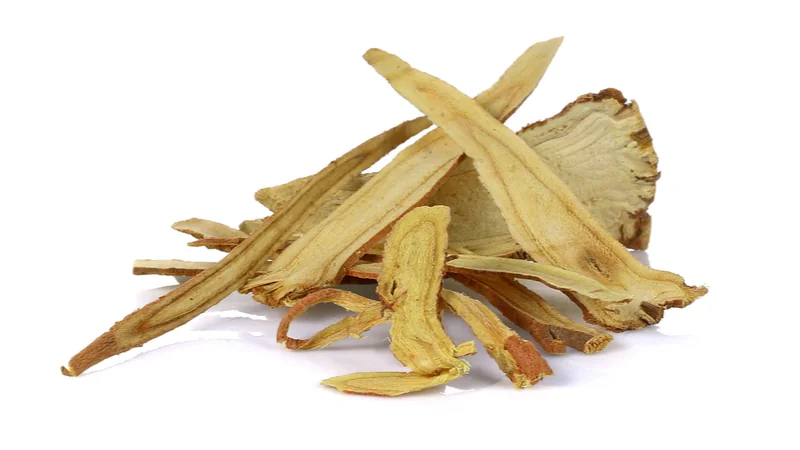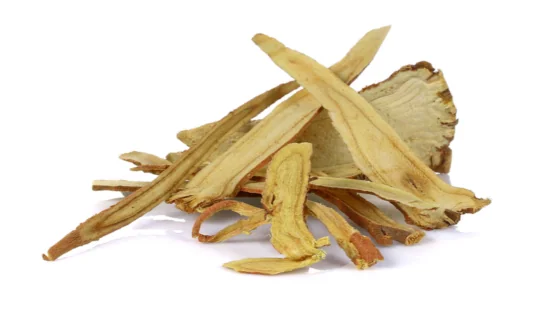Researchers publishing in Aging have reported that licochalcone A (LA), a flavonoid that originates from Chinese licorice, restores human adipose-derived stem cells (hADSCs) in cell culture.
Reported positive effects
Previous research on Licochalcone A has discovered that it has anti-inflammatory and anti-tumor effects [1], reduces obesity in mice [2], and protects against liver failure through its antioxidant properties [3], among multiple other benefits. Therefore, the researchers of this paper sought to learn more its fundamental biochemical effects, including how it affects stem cell aging.
Differentiation and glycolysis
For this study, the researchers chose hADSCs that they had aged in their previous work [4], then they tested multiple concentrations of LA in their cell culture in order to determine its cytotoxicity, that is, how dangerous it was to cells.
Instead, at a 25-micromolar concentration, they found that LA was substantially beneficial to the proliferation of hADSCs. SA-beta-galactose, a well-known marker of senescent cells that was upregulated in the control group, was substantially downregulated in the LA culture. The LA-cultured cells had longer telomeres, less of the senescence marker p16Ink4A, and less mRNA relating to the senescence-associated compounds p53 and p21.
Osteogenic (bone-forming) differentiation in hADSCs was also positively affected, according to multiple biomarkers. The three marker genes ALP, OCN, and RUNX2 were all upregulated in the presence of LA. Adipogenic (fat-forming) differentiation was, similarly, downregulated. This is counter to the normal effects of aging, which upregulates adipogenic differentiation while downregulating osteogenic differentiation.
The researchers also examined the cells’ ability to metabolize glucose (glycolysis). Multiple signaling genes related to glycolysis were upregulated, a finding that was confirmed through RNA sequencing analysis. Enzymes relating to glycolysis were also upregulated, as was the relationship between extracellular acidification and oxygen consumption.
Conclusion
The researchers conclude their investigation by stating that the effects of licochalcone A on glycolysis are responsible for the specific differentiation changes shown in this research and what cause its rejuvenative effects.
However, this is only a cellular study, and there are many questions left unanswered. The exact biochemical pathways are not fully explored, and further research should be conducted in order to more deeply explore why this compound has the effects reported here.
If these positive effects of licochalcone A can be confirmed through in vivo studies and human clinical trials, it may be of use in treating multiple age-related diseases, particularly ones related to stem cell exhaustion.
Literature
[1] Huang, W. C., Su, H. H., Fang, L. W., Wu, S. J., & Liou, C. J. (2019). Licochalcone A inhibits cellular motility by suppressing E-cadherin and MAPK signaling in breast cancer. Cells, 8(3), 218.
[2] Lee, H. E., Yang, G., Han, S. H., Lee, J. H., An, T. J., Jang, J. K., & Lee, J. Y. (2018). Anti-obesity potential of Glycyrrhiza uralensis and licochalcone A through induction of adipocyte browning. Biochemical and biophysical research communications, 503(3), 2117-2123.
[3] Lv, H., Xiao, Q., Zhou, J., Feng, H., Liu, G., & Ci, X. (2018). Licochalcone A upregulates Nrf2 antioxidant pathway and thereby alleviates acetaminophen-induced hepatotoxicity. Frontiers in pharmacology, 9, 147.
[4] Shen, J., Zhu, X., & Liu, H. (2020). MiR-483 induces senescence of human adipose-derived mesenchymal stem cells through IGF1 inhibition. Aging (Albany NY), 12(15), 15756.





